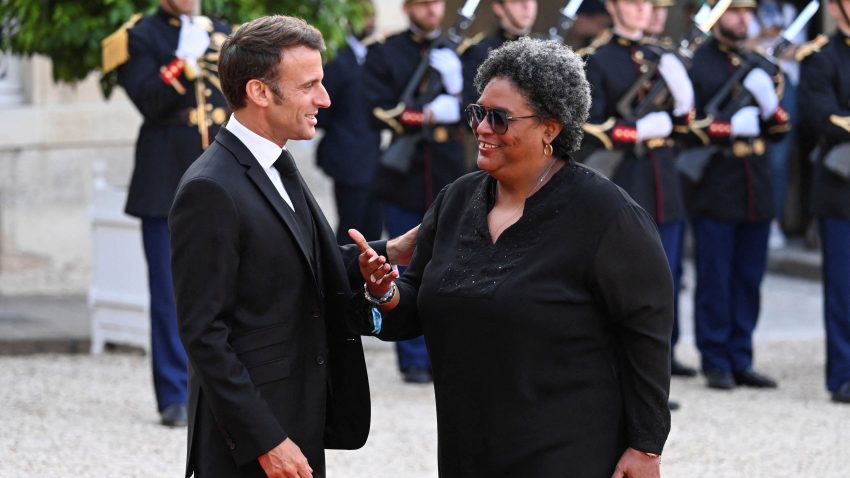French President Emmanuel Macron has long called for a stronger and more sovereign Europe that can, as he put it at a recent press conference, be “the third stability pole” in what he described as “an unbalanced world.” France can contribute to that effort, he added, by being a “power that seeks balance and innovative solutions and that avoids driving a wedge between the North and the South.”
These aspirations are not new for Macron. They were already reflected in the Paris Pact for People and the Planet, an outline for global governance reform that emerged from the June 2023 Summit for a New Global Financing Pact that Macron co-chaired with Barbados Prime Minister Mia Mottley. The pact, which was endorsed by 43 countries, promotes global cooperation and creative solutions to fight poverty and spur the international green transition, while respecting national sovereignty and encouraging “country ownership of transition strategies.” For this to happen, it bets on strong financial stimulus from wealthier countries, multilateral development banks and the private sector. As importantly, it also calls for reform of the international finance architecture.
In December 2023, at the United Nations COP28 Climate Change Conference in Dubai, Macron provided an update on the initiative’s progress, while also joining Antigua and Barbuda, Barbados, Kenya and Spain in launching a task force on “international taxation to scale up development, climate and nature action.” Clearly, the French government under Macron has achieved some success at building bridges with the Global South, in part by leveraging Macron’s partnership with Mottley, who has been a fierce leader in advancing vulnerable countries’ interests in the fight against climate change.

